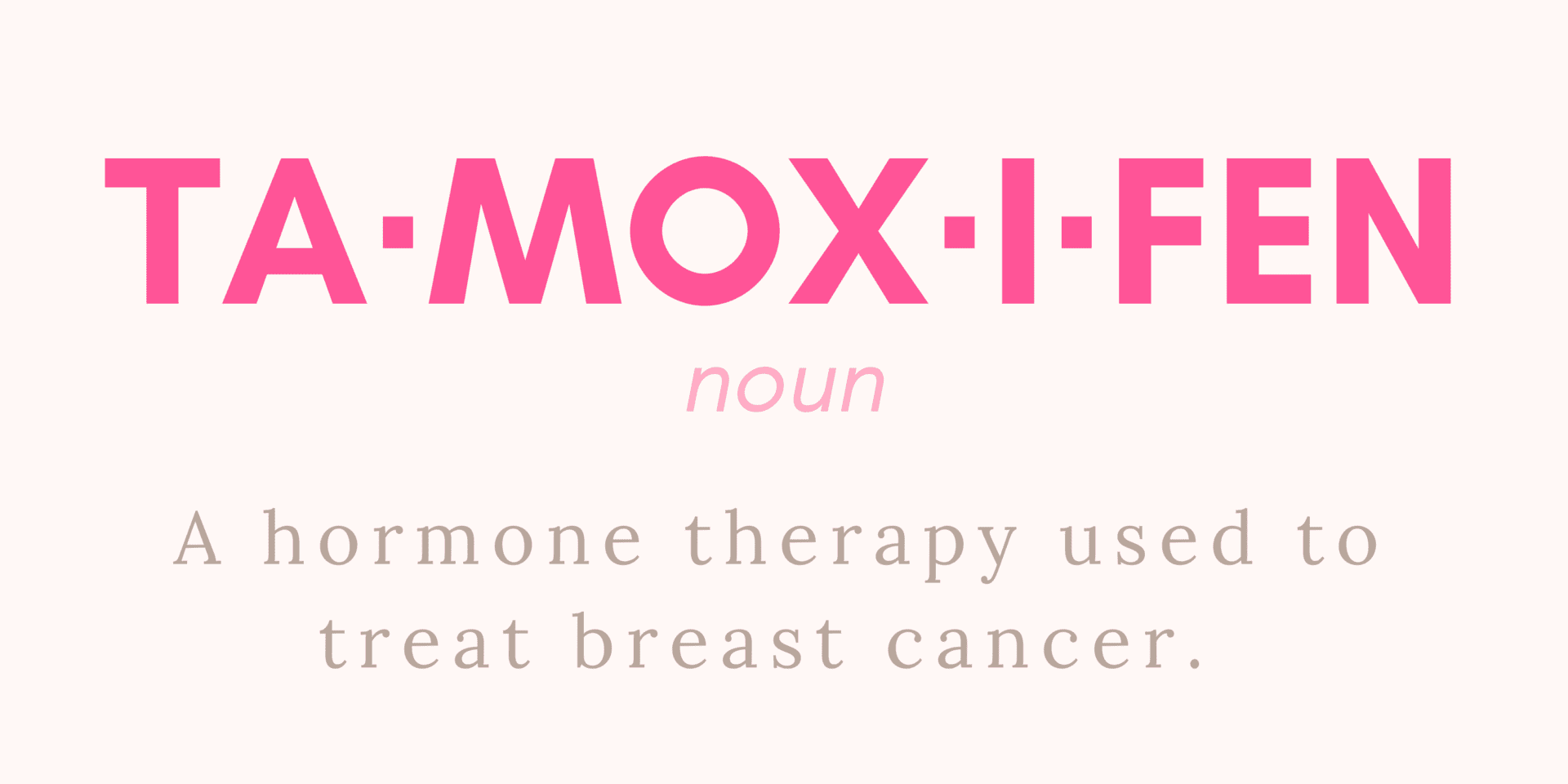Tamoxifen: What You Need To Know
4 MINS to read

Tamoxifen… you’ve probably heard of it, but what is it really? Here are some quick facts you should know about this common breast cancer drug.
Tamoxifen is one of the most common hormonal therapies for hormone-receptor-positive breast cancers (cancerous cells that feed off of certain hormones in the body). It’s usually taken as a pill once a day under the brand name Nolvadex. However, for people who have difficulty taking pills it can be given in a liquid form called Soltamox. Tamoxifen is often administered after surgery (as adjuvant therapy) to help reduce the risk of the cancer coming back. Sometimes it is started before surgery (as neoadjuvant therapy) as well.
Tamoxifen works by blocking/stopping the effects of estrogen in a person’s breast tissue. This is because hormone-receptor-positive breast cancer feeds on hormones (like estrogen or progesterone) to grow. Tamoxifen can be used to treat people who have any stage of hormone-receptor-positive breast cancer, to reduce the risk of recurrence in people who’ve had it, or to treat those who are high risk for developing the disease. However, it can also be used to reduce the risk of DCIS (cancer that starts in the milk ducts of the breast) and LCIS (cancer that starts in the lobules/milk glands of the breast) from spreading and turning into invasive breast cancer.
Yes! Tamoxifen can have some aggressive side effects, especially for pre-menopausal women forced into early menopause. Most common on the list are:
In addition to day to day side effects, tamoxifen can increase a person’s risk of more serious medical conditions (see a full list here). If you are taking tamoxifen, it’s important to stay in tune with your body. Bring up any concerns you have to your doctor.
While each person is unique, tamoxifen is known to be a beneficial treatment for hormone-receptor-positive breast cancer on all fronts. This includes: reducing recurrence rates by 40-50% in post-menopausal women and 30-50% in pre-menopausal women, reducing the risk of cancer spreading to the other breast, tumour regression before surgery, slowing the growth of metastatic cancer, and lowering the risk of breast cancer in those who are high risk due to genetic and hereditary factors. However, according to breastcancer.org there are also factors that can affect how well a person responds to tamoxifen. When you take tamoxifen, the natural enzymes in your body called CYP2D6 help transform it into its active state. However, if this enzyme doesn’t work properly in your body (due to a genetic abnormality or other medications you’re taking), then the tamoxifen won’t be as effective as it can be. For a full list of medications you shouldn’t use while taking tamoxifen, click here.
A person’s specific situation will usually affect how long they take tamoxifen for. But here are some typical timelines to note:
✔ Treating primary occurrence: 5 to 10 years
✔ Treating secondary occurrence or locally advanced cancer: Ongoing, or for as long as it’s keeping the cancer from growing/spreading more
✔ Decreasing risk of recurrence in those that have had breast cancer: 10 years
✔ Reducing breast cancer risk in high risk individuals: Up to 5 years